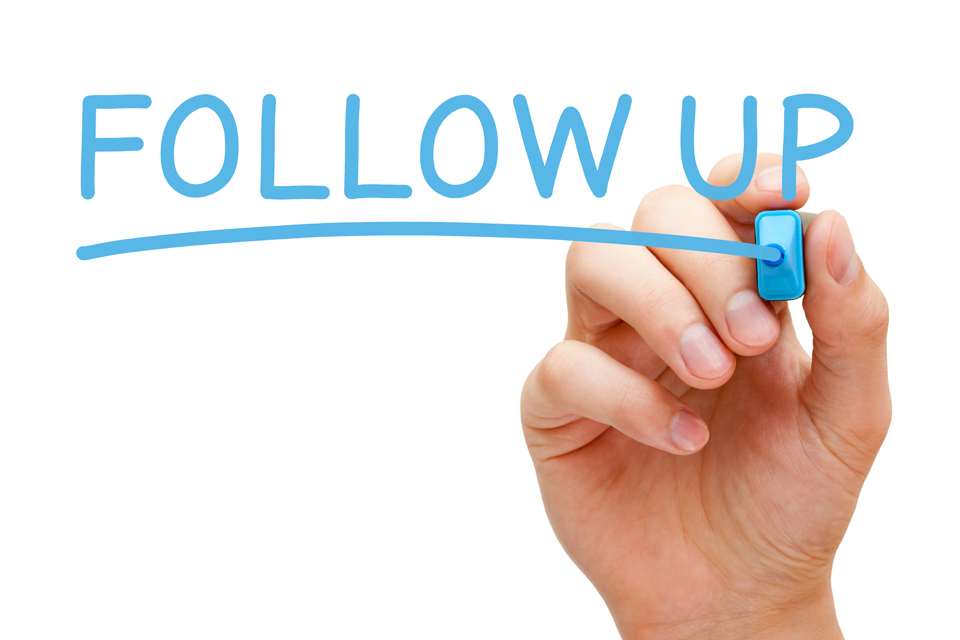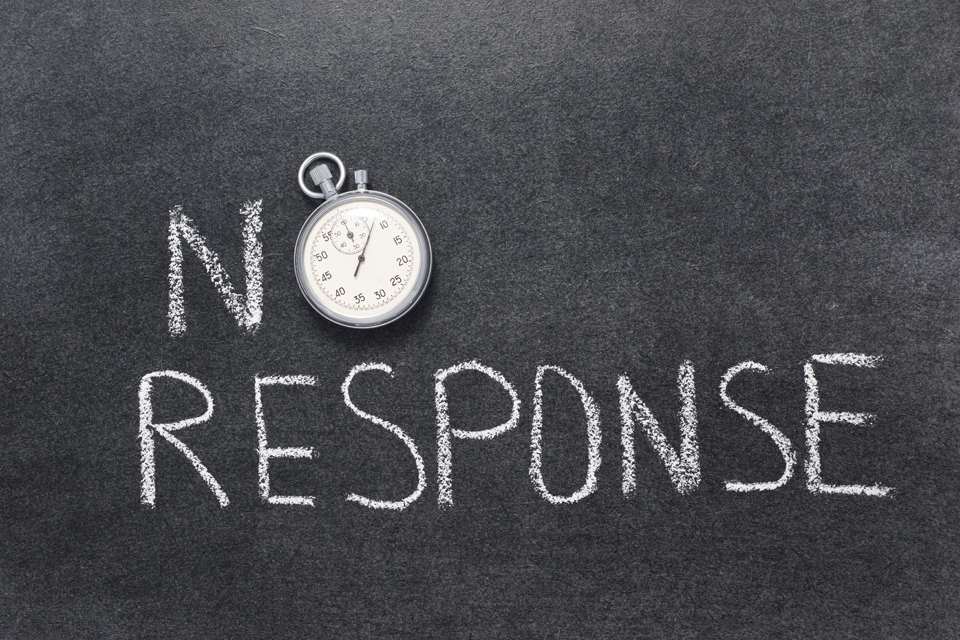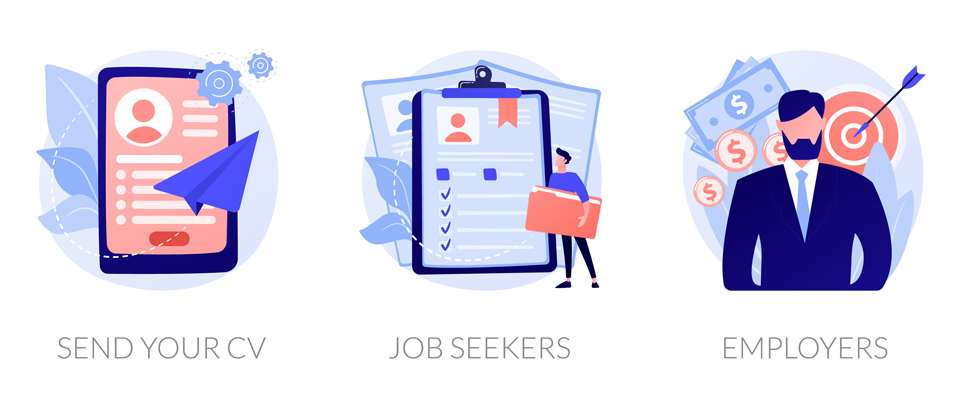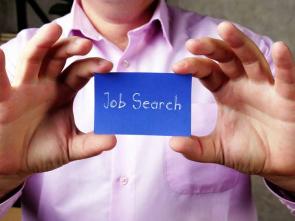
The short answer is no. While it is certainly possible that they have found another candidate they prefer over you, the fact that you have not heard anything back is not conclusive proof of that.
When you reach the interview stage for the job you want, it is a good idea to apply for other future interviews.
Contacting Employers After Job Interviews: What You Need To Know

Despite all the well-intended advice out there about following up after an interview - some telling you that being aggressive shows your interest, calling the prospective employer and asking how things stand is rarely appreciated. Especially if you are trying to make, them follow YOUR schedule.
Employers pretty much assume you are genuinely interested in their company. After all, it pays real money. Most people are not sitting there wondering, "Oh dear me, did she or he like us?" Of course, if your profile matches theirs, they want to know you are interested.
Enter Our Friend The Thank You Notes

You should send a thank-you letter, card, or email within a day or two of the interview. In this section, you thank them for the interview and let them know that you are very interested, that is, if you are.
It is unlikely that a thank you note alone will get you the job (although there are exceptions). It will not change their minds if they have already decided you are not the right fit. Nevertheless, it is a nice way to leave a lasting impression and reinforces the HR person's idea that you want their job offer.
If you sent the note and have been waiting a whole week, please know that there is no reason to get in touch so soon unless something has changed or you promised to get back to them.
How Long Does It Take To Get A Reply After An Interview?

It can take anywhere between a few hours and several weeks. To job seekers, a week can seem like an eternity. Nevertheless, that is not that long from an employer's perspective. They may even be finishing interviews or determining their next steps. (Think dog years versus people years.)
Key players' unexpected projects, vacations, or sick days occasionally keep us from completing our tasks. Some decisions in the hiring process take a while to be made when all of the people involved are gathered together.
It is not uncommon to wait a few weeks to hear back. It will not help you to keep calling if they do not remember you. They have not forgotten about you if they like you. Calling too frequently might make you appear needy or high maintenance. Even if it feels that way, the last thing you want is to imply that they are not doing something correctly — especially because it may feel that way!
How Long Does It Take To Get A Response From A Job Application?

The timetable varies based on various factors that have little to do with you. Expect a response within ten days, but do not assume that you will not get a second interview if you do not hear anything for several weeks. In this case, you should take matters into your own hands.
When Should You Follow-Up After Submitting Your Resume?

If you have not been contacted after ten business days, a short, courteous email updating them on your status and asking if any further information you can provide would be acceptable for most tasks. If this is a position where you know they need to hire someone right away or maybe a sales job where they might appreciate your more energetic approach, perhaps a week would be sufficient.
Alternatively, if something changes in your schedule or you are offered another position, do not hesitate to contact the individual with whom you had the greatest rapport and notify them.
Why Your Follow-Up Call (Or Email) Is Not Getting Any Response After An Interview?

So what is going on? Here are some good (and not-so-good) reasons why you might not have heard anything after your job interview:
(1) Human resources policy – Human resources policies at some companies prohibit employees from responding to job interview candidate inquiries for legal reasons. So you are not the only one being ignored. The contact is likely noted. There is just no response.
(2) Lack of consideration – Even when companies know people are waiting, they do not notify anyone except those they are most interested in. Even they do not hear from the company until it is ready. This may not be an official policy, but it is accepted practice.
(3) Stalling for time – Sometimes, you are still unsure which way you want to go, so you do not respond to anyone until you are sure. There are times when you wait to see if any new resumes will enter the pool of candidates. This can happen even if they already have a favorite candidate.
(4) No one authorized to respond officially – Some places are not set up for interviews, so they do not know what to do when people call or contact them. They wait until their next steps are set up, taking time.
(5) Not sure what to say – When someone calls, you are unsure what to tell them or do not want to start a conversation that could be awkward before the next steps are clear.
(6) Still interviewing people – Due to scheduling reasons or the fact that new resumes are still coming in, interviewing can continue beyond the week you were interviewed. You are still a top candidate, though. They just may be looking for that "perfect" match.
(7) Waiting for key players to be available – To schedule the next round of interviews, everyone involved in the hiring process must be consulted. When more than one person is involved, this can be tricky.
(8) You have written too often – You may have heard back once and received a polite response. Then you took it as an invitation to keep bugging them. They get annoyed. Do not keep writing or calling if you have not asked to check in again in another week or two.
(9) You are sitting in spam – Unless they have you in their address book, your email may get sent to spam since they do not know who you are. You should include something in the subject line to identify the position you are writing about. "Hi" is an inappropriate subject line for this purpose.
(10) Lack of awareness – They could be perfectly nice people who are just unaware of the procedure. Unbelievable, right? I was like that when I first started my career. Particularly in smaller companies and those without formal human resources processes, it can be a challenge to hire.
(11) What you said or wrote bugged them – Your tone or whatever you said may have been annoying to them if they saw your email or heard your voicemail. Do not sound like you tell them they should have contacted you sooner. Keep it polite and short. Inform them that you are still very interested and ask if there is anything else you can provide to assist with their hiring decision.
(12) They are just plain swamped! – Many people have hundreds of old and new messages in their inboxes. During the job search, this number can go up by another 50 or 100 because of internal emails from the hiring team and human resources and everyone else thinking they deserve a personal response to their questions.
It may also be worth asking whether sending one was the right move at all — “Why Thank-You Letters After Law Firm Interviews Can Hurt Your Chances—And When They Might Help” explores when these letters can hurt instead of help.
Is Lack Of Response A Sign They Would Be A Bad Place To Work?

No, not necessarily. Online articles warn you that any company that does not respond to you within a reasonable timeframe is probably not worth working for. While it may be tempting to jump to that conclusion, you could end up missing out on an exciting opportunity. Why is that?
I can tell you from lots of experience that the people handling the interview are not always the same people you would work for. Many companies, even good ones, get the hiring process wrong, even if they are good. I worked in great companies with terrible interview policies.
While a smooth hiring process can be a good sign, this is one of those times when you should not assume anything. If you are worried about working for the company, pay attention to anyone you will be working with directly during the interview process.
Do your homework as well. Make use of search engines, LinkedIn, places like Glassdoor.com (employee reviews), and even interviewer answers to your questions to get a sense of what they are like.
Ask anyone you know who works there - or someone you know who knows someone. NOTE: Be careful about contacting people you do not know to get the scoop within the company. Things get passed on and, unless done well, may not always benefit you.
Do You Know What To Do If You Do Not Hear Back About Your Interview?

The most important thing is not to bother them any longer! Being overly eager can quickly turn into being annoying. You can now only let them do what they need to do if you have attempted to contact them via email or phone without hearing back. You have not been forgotten if you are a top contender since finding the right candidate is not easy. The chances of turning things around are very slim if you do not have a follow-up email.
It is okay to give it another shot if you think there is something new to add since your thank you an email (hopefully, you sent one). Reach out to the person you connected with most. You could also try politely approaching the head of the department you would like to work for. Maybe this time, use snail mail to ensure that your emails or voicemails will not be eaten by hungry electronic spam detectors or delete buttons.
In a crowded inbox, messages can easily be lost during attempts to free up space. At times, all you can do is wait. And keep your sanity. Meanwhile, keep looking for a job.

Question:
I am a third-year litigator, and it has been one week since I interviewed with a law firm. I think everything went very well; even the hiring manager told me how qualified I am. However, when I sent thank-you emails, nobody responded. It has been a week, and I am assuming the worst. My husband tells me I am being a pessimist. What is your thought?Answer:
It is understandable to assume the worst in this situation, but what you are experiencing is not unusual at all right now. I have seen people in your exact situation get offers, so you should not assume the worst. Of course, it would have been nice if the hiring managers responded to your thank you notes. But very often, they do not. Why? They want to be very careful not to say something (even if said casually) that could send the wrong signal.There are many ways to incorrectly interpret an otherwise innocent remark made by an attorney when they respond to a thank you note. For example, if somebody responds with, ''Nice meeting you, too - best of luck!'' you might assume the worst (''Uh oh, if they were interested in seeing me again, they would not have said 'best of luck,' which is something you say to somebody you do not expect to see again. Damn!''). On the other hand, if somebody responded politely with, ''Nice meeting you, too - I hope to see you again soon!'' you might throw your hands up in victory on the premature assumption that ''I hope to see you again'' must surely (and literally) mean ''I hope we hire you and I hope to see you in our firm.'' (I am only half-joking ... I have heard this rationale many times from distressed job candidates.)
As you can see, as a candidate in an understandably heightened state of anxiety, it is very easy to jump to conclusions that are not accurate quickly. The attorneys at the interviewing firm often know this, so rather than risk being the one person who sends the incorrect message and getting in trouble later on for speaking out of turn- attorneys often play it safe and do not respond. The rules of social pressure encourage people at the interviewing, firm-especially those that are not critical to the final decision-making process-to sit tight and not respond.
I have seen many people not get responses at all and subsequently receive offers, and I have also seen people get very nice and encouraging responses and end up not receiving an offer. All things being equal, a response is a better sign than no response at all, but do not assume the worst just yet. Hang in there.
About Harrison Barnes
No legal recruiter in the United States has placed more attorneys at top law firms across every practice area than Harrison Barnes. His unmatched expertise, industry connections, and proven placement strategies have made him the most influential legal career advisor for attorneys seeking success in Big Law, elite boutiques, mid-sized firms, small firms, firms in the largest and smallest markets, and in over 350 separate practice areas.
A Reach Unlike Any Other Legal Recruiter
Most legal recruiters focus only on placing attorneys in large markets or specific practice areas, but Harrison places attorneys at all levels, in all practice areas, and in all locations-from the most prestigious firms in New York, Los Angeles, and Washington, D.C., to small and mid-sized firms in rural markets. Every week, he successfully places attorneys not only in high-demand practice areas like corporate and litigation but also in niche and less commonly recruited areas such as:
- Immigration Law
- Workers Compensation
- Insurance
- Family Law
- Trust and Estate
- Municipal law
- And many more...
This breadth of placements is unheard of in the legal recruiting industry and is a testament to his extraordinary ability to connect attorneys with the right firms, regardless of market size or practice area.
Proven Success at All Levels
With over 25 years of experience, Harrison has successfully placed attorneys at over 1,000 law firms, including:
- Top Am Law 100 firms such including Sullivan and Cromwell, and almost every AmLaw 100 and AmLaw 200 law firm.
- Elite boutique firms with specialized practices
- Mid-sized firms looking to expand their practice areas
- Growing firms in small and rural markets
He has also placed hundreds of law firm partners and has worked on firm and practice area mergers, helping law firms strategically grow their teams.
Unmatched Commitment to Attorney Success - The Story of BCG Attorney Search
Harrison Barnes is not just the most effective legal recruiter in the country, he is also the founder of BCG Attorney Search, a recruiting powerhouse that has helped thousands of attorneys transform their careers. His vision for BCG goes beyond just job placement; it is built on a mission to provide attorneys with opportunities they would never have access to otherwise. Unlike traditional recruiting firms, BCG Attorney Search operates as a career partner, not just a placement service. The firm's unparalleled resources, including a team of over 150 employees, enable it to offer customized job searches, direct outreach to firms, and market intelligence that no other legal recruiting service provides. Attorneys working with Harrison and BCG gain access to hidden opportunities, real-time insights on firm hiring trends, and guidance from a team that truly understands the legal market. You can read more about how BCG Attorney Search revolutionizes legal recruiting here: The Story of BCG Attorney Search and What We Do for You.
The Most Trusted Career Advisor for Attorneys
Harrison's legal career insights are the most widely followed in the profession.
- His articles on BCG Search alone are read by over 150,000 attorneys per month, making his guidance the most sought-after in the legal field. Read his latest insights here.
- He has conducted hundreds of hours of career development webinars, available here: Harrison Barnes Webinar Replays.
- His placement success is unmatched-see examples here: Harrison Barnes' Attorney Placements.
- He has created numerous comprehensive career development courses, including BigLaw Breakthrough, designed to help attorneys land positions at elite law firms.
Submit Your Resume to Work with Harrison Barnes
If you are serious about advancing your legal career and want access to the most sought-after law firm opportunities, Harrison Barnes is the most powerful recruiter to have on your side.
Submit your resume today to start working with him: Submit Resume Here
With an unmatched track record of success, a vast team of over 150 dedicated employees, and a reach into every market and practice area, Harrison Barnes is the recruiter who makes career transformations happen and has the talent and resources behind him to make this happen.
A Relentless Commitment to Attorney Success
Unlike most recruiters who work with only a narrow subset of attorneys, Harrison Barnes works with lawyers at all stages of their careers, from junior associates to senior partners, in every practice area imaginable. His placements are not limited to only those with "elite" credentials-he has helped thousands of attorneys, including those who thought it was impossible to move firms, find their next great opportunity.
Harrison's work is backed by a team of over 150 professionals who work around the clock to uncover hidden job opportunities at law firms across the country. His team:
- Finds and creates job openings that aren't publicly listed, giving attorneys access to exclusive opportunities.
- Works closely with candidates to ensure their resumes and applications stand out.
- Provides ongoing guidance and career coaching to help attorneys navigate interviews, negotiations, and transitions successfully.
This level of dedicated support is unmatched in the legal recruiting industry.
A Legal Recruiter Who Changes Lives
Harrison believes that every attorney-no matter their background, law school, or previous experience-has the potential to find success in the right law firm environment. Many attorneys come to him feeling stuck in their careers, underpaid, or unsure of their next steps. Through his unique ability to identify the right opportunities, he helps attorneys transform their careers in ways they never thought possible.
He has worked with:
- Attorneys making below-market salaries who went on to double or triple their earnings at new firms.
- Senior attorneys who believed they were "too experienced" to make a move and found better roles with firms eager for their expertise.
- Attorneys in small or remote markets who assumed they had no options-only to be placed at strong firms they never knew existed.
- Partners looking for a better platform or more autonomy who successfully transitioned to firms where they could grow their practice.
For attorneys who think their options are limited, Harrison Barnes has proven time and time again that opportunities exist-often in places they never expected.
Submit Your Resume Today - Start Your Career Transformation
If you want to explore new career opportunities, Harrison Barnes and BCG Attorney Search are your best resources. Whether you are looking for a BigLaw position, a boutique firm, or a move to a better work environment, Harrison's expertise will help you take control of your future.
Submit Your Resume Here to get started with Harrison Barnes today.
Harrison's reach, experience, and proven results make him the best legal recruiter in the industry. Don't settle for an average recruiter-work with the one who has changed the careers of thousands of attorneys and can do the same for you.
About BCG Attorney Search
BCG Attorney Search matches attorneys and law firms with unparalleled expertise and drive, while achieving results. Known globally for its success in locating and placing attorneys in law firms of all sizes, BCG Attorney Search has placed thousands of attorneys in law firms in thousands of different law firms around the country. Unlike other legal placement firms, BCG Attorney Search brings massive resources of over 150 employees to its placement efforts locating positions and opportunities its competitors simply cannot. Every legal recruiter at BCG Attorney Search is a former successful attorney who attended a top law school, worked in top law firms and brought massive drive and commitment to their work. BCG Attorney Search legal recruiters take your legal career seriously and understand attorneys. For more information, please visit www.BCGSearch.com.
Harrison Barnes does a weekly free webinar with live Q&A for attorneys and law students each Wednesday at 10:00 am PST. You can attend anonymously and ask questions about your career, this article, or any other legal career-related topics. You can sign up for the weekly webinar here: Register on Zoom
Harrison also does a weekly free webinar with live Q&A for law firms, companies, and others who hire attorneys each Wednesday at 10:00 am PST. You can sign up for the weekly webinar here: Register on Zoom
You can browse a list of past webinars here: Webinar Replays
You can also listen to Harrison Barnes Podcasts here: Attorney Career Advice Podcasts
You can also read Harrison Barnes' articles and books here: Harrison's Perspectives
Harrison Barnes is the legal profession's mentor and may be the only person in your legal career who will tell you why you are not reaching your full potential and what you really need to do to grow as an attorney--regardless of how much it hurts. If you prefer truth to stagnation, growth to comfort, and actionable ideas instead of fluffy concepts, you and Harrison will get along just fine. If, however, you want to stay where you are, talk about your past successes, and feel comfortable, Harrison is not for you.
Truly great mentors are like parents, doctors, therapists, spiritual figures, and others because in order to help you they need to expose you to pain and expose your weaknesses. But suppose you act on the advice and pain created by a mentor. In that case, you will become better: a better attorney, better employees, a better boss, know where you are going, and appreciate where you have been--you will hopefully also become a happier and better person. As you learn from Harrison, he hopes he will become your mentor.
To read more career and life advice articles visit Harrison's personal blog.





